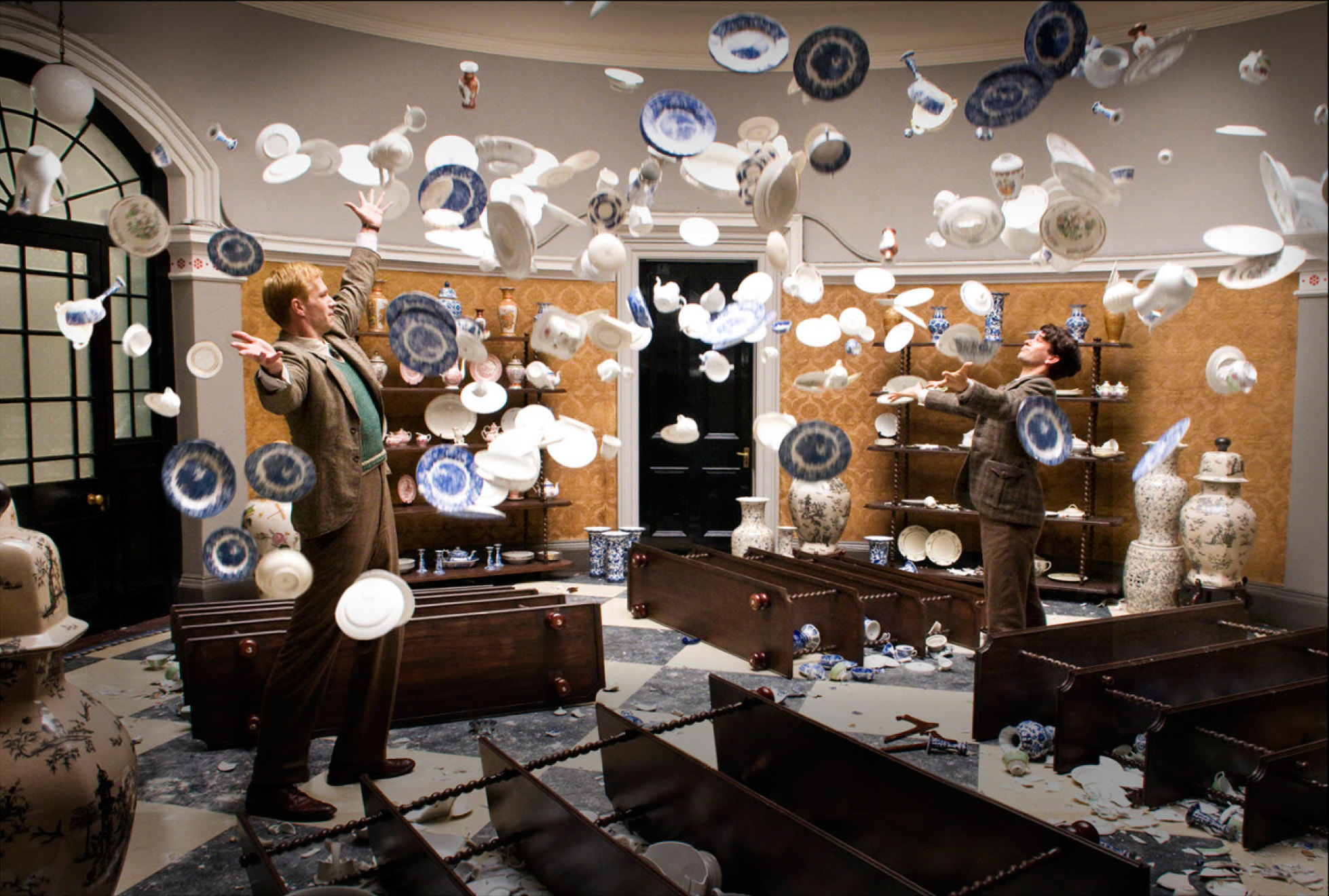Cloud Atlas
It’s only logical to assume that a great book will make a great movie. And as a book ‘Cloud Atlas’ has certainly achieved success, winning the ‘British literary fiction’ award and the ‘Richard and Judy book of the year’ award. It’s even been praised as a work of modern literature. But even with all its potential, turning a literary masterpiece into a cinematic one is no easy matter. It takes creativity, dedication and an excellent cast and crew.
Thankfully Cloud Atlas delivers in all of these criteria.
Filmed in Germany, this science fiction film is one of the most expensive independent films of all time. Considering the quality of the special effects, cinematography and seamless use of CGI to create fantastical yet realistic situations, that claim is easily believable. In fact I would say the whole film felt very surreal, almost like spending two and a half hours in a dream. While some people might say it felt too artificial, I was oddly entranced the whole way through by the beautiful graphics and soundtrack.
{{ quote The film raises a number of existential questions that have plagued mankind since the dawn of civilisation and as ‘Cloud Atlas’ illustrates throughout its considerable running time, will continue to be debated and asked for centuries.}}
Though conforming to the original plot of the novel, Directors Tom Tykwer and Andy and Lana Wachowski have managed to differentiate the film from the book, adding their own unique take on the story.
The story itself is complicated, following the lives of characters in six different timelines. The first timeline, set in 1849, centres around an American lawyer and his unexpected friendship with a black stowaway slave.
Timeline two is set in 1936 in Cambridge, England, following the story of young bisexual musician Robert Frobisher who becomes an apprentice to a famous composer. Frobisher is the one who later composes the ‘Cloud Atlas sextet’ which becomes the theme music for the film.
Timeline three is set in 1973, California, where a young female journalist played by Halle Berry investigates a conspiracy involving a nuclear reactor.
The next timeline is set in 2012 in the U.K and is a more light-hearted comedic segment, following the exploits of Timothy Cavendish, a broke publisher who finds himself trapped in a nursing home. The comedy is a welcome break and a direct contrast to the other timelines, which are more serious and in some cases tragic in nature. Like any good dystopian science fiction however, the fifth timeline shows a harrowing future. It is 2144 in Neo Seoul (Korea) and a genetically-engineered clone named Sonmi-451 recounts her tale of rebellion, freedom and love before her execution.
The last timeline is the one that perhaps ties all the rest together, as the actual ‘Cloud Atlas’ is finally revealed. Set in a post-apocalyptic world where human colonies have reverted to a primitive, tribal form of civilisation, this last timeline is intertwined with an overwhelming sense of both disillusionment and, despite everything, hope. Everything built up over the centuries comes to a climax, and I think this is where the heart of the story is. It is an exploration, of how one person’s actions can still make an impact centuries on, of how each of us leaves behind a footprint after we are gone that can make all the difference in the world. Each timeline is tied to the next; while they may seem unrelated, they are subtlety entwined through time. The director’s choice to use the same cast throughout the different timelines only emphasizes this. Although then again, with a cast including Tom Hanks, Halle Berry and Hugh Grant, he would be crazy not to.
In conclusion, though the film at times appears as complicated and convoluted as the book, the artistic ambition involved in such an adaptation is evident from the first scene and I find that I gain something new every time I re-watch it.
It’s a film that raises a number of existential questions that have plagued mankind since the dawn of civilisation and as ‘Cloud Atlas’ illustrates throughout its considerable running time, will continue to be debated and asked for centuries.
If you’re looking for a thought provoking film with a great deal of visual spectacle to keep you in awe, ‘Cloud Atlas’ is perfect for you.

Comments